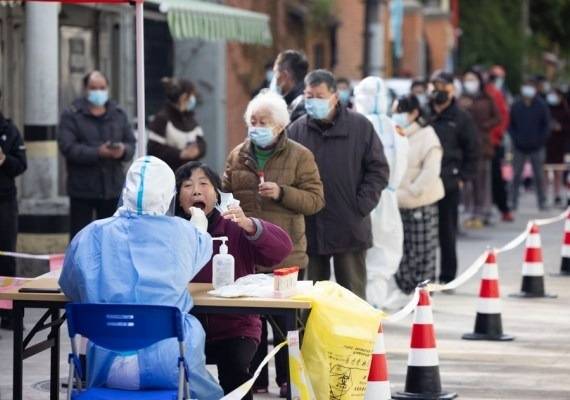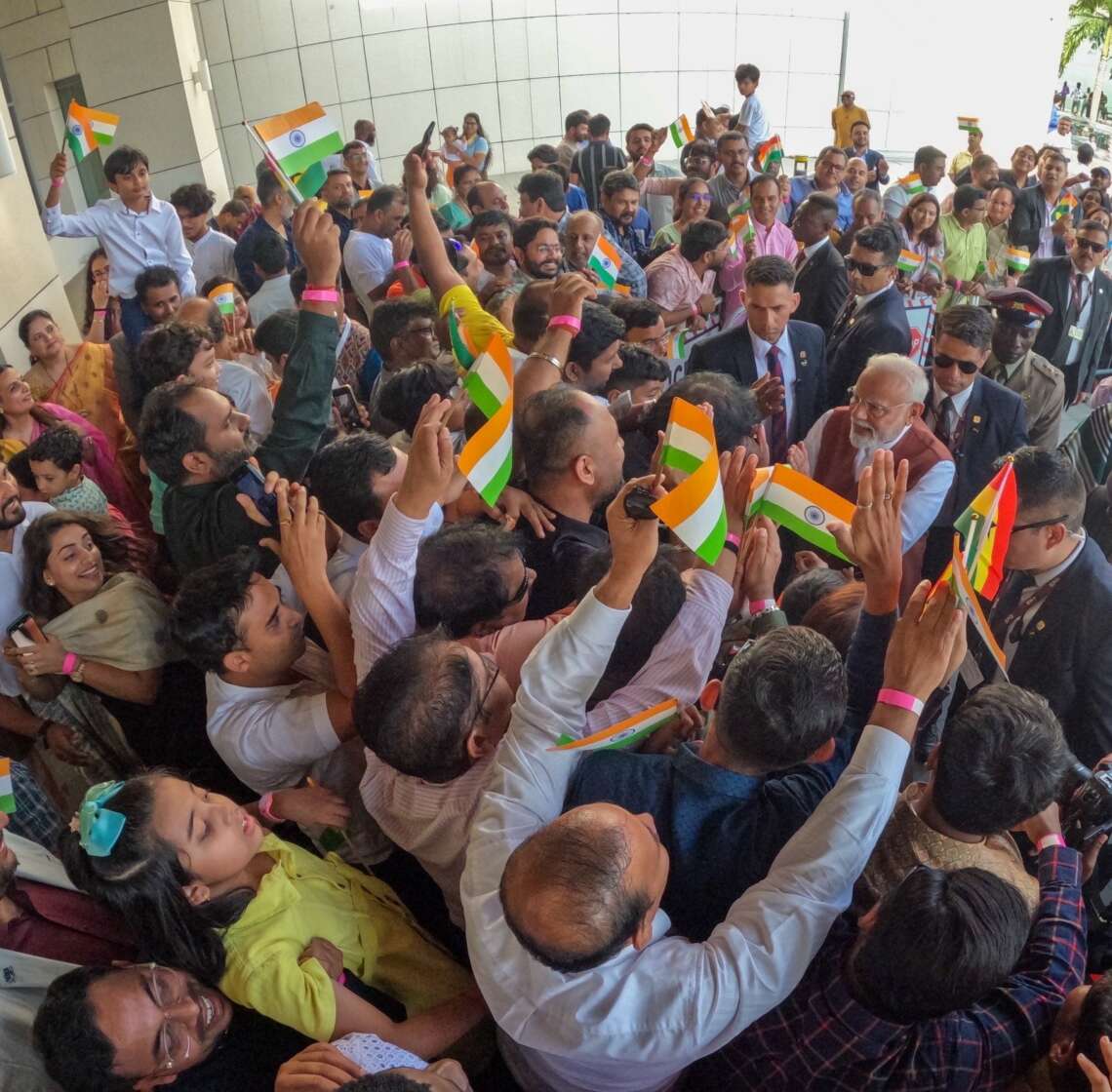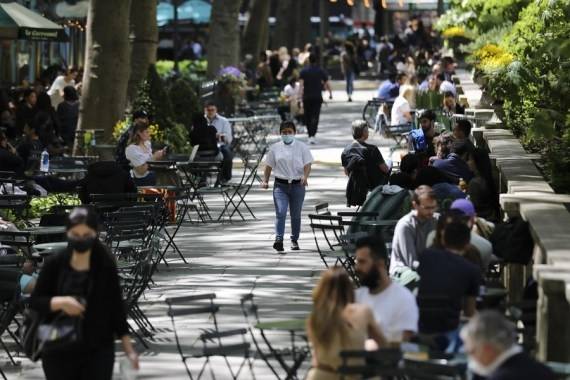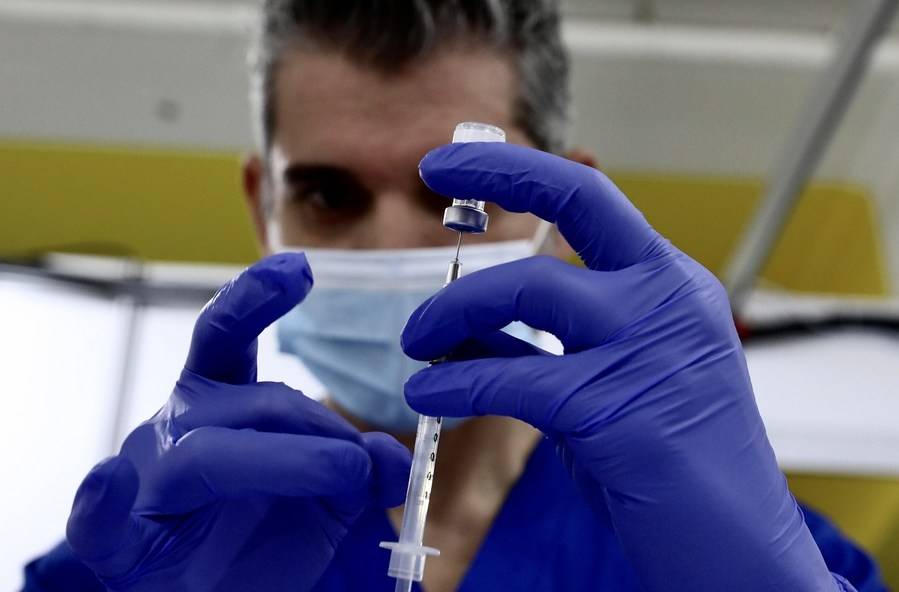The pandemic situation in Shanghai is still deteriorating according to reports, and the number of infected people is still high under the “zero lockdown” policy
As Shanghai’s COVID-19 lockdown leaves residents struggling to access essentials, residents of the mega Chinese city are almost out of food and they are reeling under an acute food crisis.
They say that they “only eat one meal a day” and “don’t know how to live until May”, The HK Post reported. According to the report, the epidemic situation in Shanghai is still deteriorating, and the number of infected people is still high under the “zero lockdown” policy.
On April 3, the Chinese government announced the deployment of thousands of military personnel to Shanghai to assist in the mandatory testing of all 25 million residents for the virus that causes COVID-19. Later, Shanghai authorities said the city would indefinitely remain under lockdown – meaning that residents are not allowed to leave their homes – as it reviews results of the mass Covid testing.
Analysts have said China would not risk relaxing its zero-Covid stance before then, over fears of a destabilizing outbreak. Meanwhile, health experts have warned the virus could overwhelm health care systems, and put the elderly, who lag in vaccinations, at risk, CNN reported.
But even as Beijing sticks to its zero-tolerance approach, it is facing the possibility of multiple major outbreaks as Omicron spreads, the report added.
According to the authorities, Shanghai has had more than 130,000 COVID cases since 1 March, yet nobody has died and there is only one seriously ill person. Such statistics fly in the face of the rest of the world’s experience with COVID.
Wu Zunyou of China’s Center for Disease Control said death rates were minimal because of efforts to curb outbreaks early and China’s high vaccination rate. “Compared with overseas, our country’s COVID-19 death rate is low because of the various measures to prevent or reduce deaths.”
ALSO READ: Is another Covid wave on the horizon for India?
When reporting deaths, there are strong incentives in China not to attribute them directly to COVID if alternative underlying conditions are available. Because of official obfuscation, it is simply impossible to know how many have died from COVID there. China also spends lots of time blaming imported frozen food and mail for spreading COVID.
Beijing claims a Zero-COVID policy must be followed because “Omicron can generate a higher mortality rate than Delta during the epidemic”. This assertion is verifiably false. Perhaps other reasons are more pertinent to the CCP’s choice of a Zero-COVID policy.
Classified management of city areas
Shanghai on Monday divided the whole city into areas belonging to three categories as part of targeted efforts to overcome a local Covid-19 resurgence.
It has designated 7,624 closed-off management areas, 2,460 restrictive control areas and 7,565 prevention areas, reports Xinhua news agency citing local authorities as saying.

The closed-off management areas refer to residential communities, villages, work units, or venues with Covid-19 infections reported in the past seven days.
People in these areas will undergo seven days of closed-off management plus seven days of health monitoring at home. Door-to-door services will be provided where needed.
The restrictive control areas are those without reported infections in the past seven days, within which people will observe seven days of health monitoring at home.
People who have an urgent need to go to the hospital, among other emergencies, in the aforementioned two areas can exit their respective areas for these purposes, with their movements under closed-loop management.
Those areas without reported infections over the past 14 days are labelled as prevention areas, where people are allowed in principle to move inside their respective sub-district or town with strict restrictions on the scale of gathering, but are banned from entering the other two types of areas.
The classification of each area can be adjusted in response to any changes in the situation within, according to the press conference.
Between Sunday and Monday, Shanghai registered 914 confirmed local Covid-19 cases and 25,173 asymptomatic infections, according to the National Health Commission.














